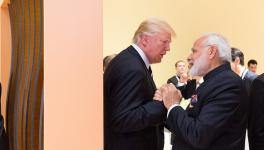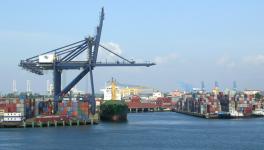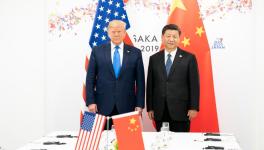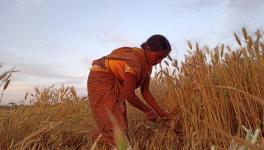RCEP is Worse Than WTO
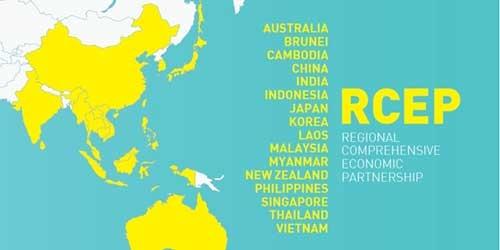
Image Courtesy: www.civilsdaily.com
On June 14th a coalition, of various unions of farmers, trade unions, and civil society groups, met at Hyderabad to discuss about resisting RCEP agreement. The coalition plans to oppose the agreement because according to them the RCEP agreement will have adverse effect on lives of farmers and workers. They have issued a press statement explaining how the agreement is not in the favour of common people. The full statement can be read below:
Hyderabad will be the centre of activity on Free Trade agreements in July 2017, when government Trade Representatives from 16 countries including India will meet for another round of negotiation in the RCEP free trade agreement (FTA). Regional Comprehensive Economic Partnership (RCEP) is one of the three largest ‘mega regional’ FTAs being negotiated in the world. Apart from India, RCEP includes economic powerhouses China, Japan, South Korea, Australia and New Zealand, along with the 10 ASEAN countries of South-East Asia – Singapore, Malaysia, Thailand, Vietnam, Indonesia, Laos, Cambodia, Brunei, Myanmar and Philippines. The RCEP meet is scheduled for 17-28 July 2017 at the Hyderabad International Convention Centre.
A coalition of Farmer Unions, Trade Unions and Civil Society groups met at Hyderabad on June 14th to plan the resistance to this RCEP agreement. They are particularly concerned with RCEP’s negative impact on the livelihoods of Farmers and Workers, and Access to Affordable Medicine for various diseases including HIV/AIDS. At the Press Meet on June 15th, the coalition declared that they will hold a People’s Convention on RCEP and Free Trade Agreements during the last week of July, and organise rallies against RCEP. The next meeting of the Organizing Committee will happen on June 19th to chalk out the specifics of the CSO programmes.
Researchers on FTAs, Shalini Bhutani and Afsar Jafri, made detailed presentations on the impacts and implications of RCEP and other free trade agreements. They pointed out that they are even more dangerous than WTO in terms of affecting the lives and livelihoods of common people, and the economic sovereignty of India. Andhra Pradesh is already facing a legal challenge by a foreign investor under a bilateral investment treaty (BIT) with UAE signed in 2013. Under that BIT the investor is allowed to sue the government for loss of intended profits from investment. The UAE investor has filed a claim for USD 44.71 million. Similar investor protector provisions are also proposed in the RCEP.
The participants in the June 14th meeting included farmer unions such as Telangana Rythu JAC, All India Kisan Sabha, AIKMS, Rythu Swarajya Vedika and Telangana Raithanga Samiti; trade unions such as AITUC, IFTU, PSI and Dalit Women’s Union; people’s organisations such as National Alliance of Dalit Organizations (NADO), Jana Vigyana Vedika, Dalit Bahujan Front, and Doctors Without Borders, and eminent leaders such as Prof. Kodandaram.
The Regional Comprehensive Economic Partnership (RCEP) is a ‘mega regional’ deal under negotiation since 2012. It is a proposed trade and investment treaty currently being negotiated between 16 countries in the Asia-Pacific region including India that together cover half the world's population. Other countries in the negotiations are Australia, China, Japan, New Zealand, South Korea, and the ten members of the Association of Southeast Asian Nations (ASEAN) i.e. Brunei Darussalam, Cambodia, Indonesia, Laos, Malaysia, Myanmar, the Philippines, Singapore, Thailand, and Vietnam.
Launched in November 2012, the most recent rounds of official talks took place in Manila, Philippines followed by meetings in Hanoi, Vietnam. The 18th round of RCEP’s trade negotiations committee will be hosted by the Government of India in Hyderabad from 17-28 July 2017.
Get the latest reports & analysis with people's perspective on Protests, movements & deep analytical videos, discussions of the current affairs in your Telegram app. Subscribe to NewsClick's Telegram channel & get Real-Time updates on stories, as they get published on our website.











